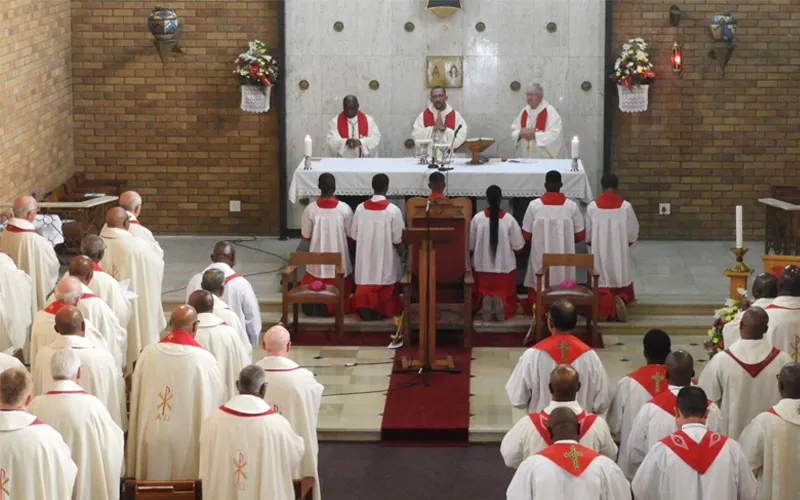In their Plenary Assembly, the SACBC members also pay tribute to Pope Emeritus Benedict XVI, describing his passing on on New Year eve last year as historical for the Church.
“Our Plenary meeting took place soon after the historical event of the passing on of Pope Benedict XVI,” the Catholic Bishops say, and add, “His passing was a historical event because his mark as a theologian, a Pope and a leader is recognised globally.”
The late Pontiff, they say, “is remembered as one who invited us to the truth that transcends our limited understanding, the truth that gives us a theoretical framework of how we must relate to and treat each other, the truth that liberates us from the dictatorship of our lower levels of existence, the truth that holds us accountable.”
“He taught us that a life worth living is not based on a personal construct of what we feel is good or right for us but rather on one that is grounded in something greater than ourselves, a truth independent of time and culture, binding everywhere and for everyone,” the Bishop say of Pope emeritus Benedict XVI.
They add, “He reminded us that ideologies that begin with the noblest intention, given their human origin can become destructive later. In contrast, a truth greater than us ensures that we will always strive to live according to its summons, even if, at times, we fail.”
(Story continues below)
The Bishops from South Africa, Botswana and eSwatini also pay tribute to Fr. Albert Nolan, a world-renowned researcher who died in October last year, describing him as a “humble but powerful witness.”
“He was fondly remembered for his humble but powerful witness during the dark years of apartheid as well as for his passion for relating the Gospel to the circumstances of the poor and oppressed,” they said.
The Catholic Bishops of the three-member Conference highlight the relevance Fr. Nolan’s book “Hope in an age of Despair”, which they say provided reflection on the sorry state of affairs in eSwatini and South Africa.
“We appreciated his (Fr. Nolan’s) call for compassion and solidarity with the poor as a way to contribute toward the alleviation of this sense of hopelessness,” they say.
Agnes Aineah is a Kenyan journalist with a background in digital and newspaper reporting. She holds a Master of Arts in Digital Journalism from the Aga Khan University, Graduate School of Media and Communications and a Bachelor's Degree in Linguistics, Media and Communications from Kenya's Moi University. Agnes currently serves as a journalist for ACI Africa.








